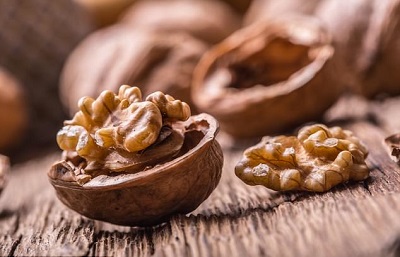A type of vitamin E found in nuts may prevent asthma attacks by reducing airway inflammation.
Sufferers of the common breathing condition taking it as part of a study were also found to have less sticky mucus in their lungs according to Daily mail.
Experts say the findings raise the possibility of asthma being kept under control by changing diet or taking a supplement.
The form of vitamin E that brought these beneficial effects is gamma-tocopherol, which is abundant in nuts such as walnuts and pecans and in the legume peanut, as well as seed oils such as corn, soybean and sesame.
This type has drawn little attention compared with alpha-tocopherol, the form most commonly found in vitamin E supplements.
‘We started looking into vitamin E because epidemiologic data suggested that people with high amounts of vitamin E in their diet were less prone to asthma and allergic disease,’ said senior study author Professor Michelle Hernandez.
Key findings
Researchers started looking into vitamin E because previous studies suggested that people with high amounts of vitamin E in their diet were less prone to asthma and allergic disease.
However, they also knew that the alpha isoform seems to be associated with an increased risk for hemorrhagic stroke, they said. So they began looking more closely at gamma tocopherol.
‘While the alpha isoform does have antioxidant activities, gamma tocopherol has both an antioxidant and a very unique anti-inflammatory action as well,’ said study first author Allison Burbank.
‘That anti-inflammatory effect is what we think made the difference in this study.’
Participants in the study were randomized into two groups that received either gamma tocopherol supplement or a placebo for two weeks. At the end, they were asked to cough up sputum.
They also underwent an lipopolysaccharide (LPS) challenge, which involves inhaling a substance that causes inflammation in the lung and then coughing up more sputum.
Less sticky mucus
After a three-week period break from taking anything, the group that took the supplement for the first two weeks, then took a placebo for the second period.
‘The advantage of a cross-over design like this is that we are able to compare the subjects to themselves,’ said Burbank. ‘And what we found is that when people were taking the vitamin E supplement, they had less eosinophilic inflammation.’
In addition, those who were taking vitamin E were also found to have lower levels of proteins called mucins, which affect the stickiness of mucus. Mucins are often elevated in asthmatics.
‘The fact that the supplement targeted the eosinophils – the main cells we worry most about in asthma treatment– was really telling,’ said Hernandez.
‘And we were also excited to see that the supplement had an effect on how mucus moves through the airway. When there are fewer mucins, the mucus is less sticky and patients are able to clear it better, which means there isn’t as much pro-inflammatory mucus staying in the lungs.’
Hernandez said that the next step is to expand the scope of the study.
‘We’d like to do this over a longer time frame and establish whether it’s safe, in less healthy adults,’ Hernandez said.
‘We want to see if there are any unanticipated effects of the supplementation regimen.’
N.H.Kh

